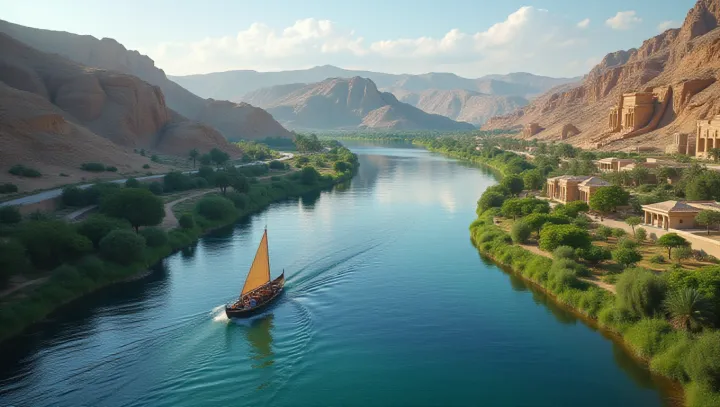The Nile's Majestic Stretch

In the heart of north-eastern Africa lies the majestic Nile, recognized as the world's longest river, stretching an impressive 6,650 kilometers. Traversing through eleven countries, this awe-inspiring watercourse is not just a geographical marvel but a cultural bedrock for the civilizations it nurtures. The Nile's influence spans various domains, from agriculture to transportation, shaping the lives of millions who reside along its banks.
Its waters have been pivotal for developing ancient and modern societies, providing essential resources such as fertile soil for farming and crucial pathways for trade. Experts like Dr. Amina Kemit from the Nile Basin Initiative emphasize the river's paramount importance: ‘Beyond its biological significance, the Nile acts as a unifying thread connecting multiple cultures, underlining the delicate balance between human need and natural endurance.’ Current discussions revolve around sustainable management and equitable resource sharing as the Nile faces increasing demands amid climatic challenges.
Dialogue amongst neighboring nations is crucial to ensuring the river continues to serve as a lifeline for the continent. As global attention shifts towards preserving natural wonders and their ecosystems, the Nile stands as a testament to the enduring interdependence between geography and humanity. Its journey remains central to understanding the intricate tapestry of life it supports.
